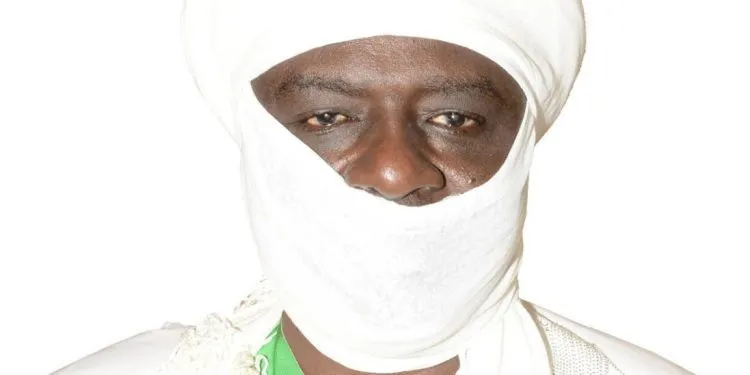By Claude Kenfack
The First Vice President of the Senate, Aboubakary Abdoulaye, who doubles as Lamido of Rey Bouba, has called for governmental reforms to upgrade living standards of Cameroonians amid bitting levels of poverty in the country.
Hon Aboubakary Abdoulaye made the address during the opening of the November session of Parliament.
Speaking on behalf of Senate President Marcel Niat Njifenji, Abdoulaye called for intensified efforts to improve public finance management, combat inflation, and provide essential services like clean water, healthcare, and reliable infrastructure.
“The government’s response to these challenges has been commendable, yet more must be done to ensure every Cameroonian can meet their basic needs,” he stated.
But while Abdoulaye’s address exuded concern for national welfare, the contrast between his words and the realities within his jurisdiction, the Lamidate of Rey Bouba, is stark.
Abdoulaye is not only a Senator but also the traditional ruler of Rey Bouba, a region mired in poverty, underdevelopment, and strict traditional governance that some describe as quasi-autocratic.
A Sneak-peek into Rey Bouba
Situated in the Northern Region of Cameroon, Rey Bouba is ruled by the Lamido, Abdoulaye himself, a title that grants him immense authority over the area.
Despite his public exhortations for better living conditions, reports and testimonies from Rey Bouba suggest a dire situation.
Access to fundamental services remains a significant challenge; education, healthcare, and even basic infrastructure are scarce, if not entirely absent.
Local residents and civil society activists have voiced frustration with the disconnect between Abdoulaye’s high-ranking political role and the living conditions in his hometown.
As one Rey Bouba resident, who spoke on condition of anonymity, said, “He talks about the importance of education and health in Yaoundé, but here in Rey Bouba, children walk miles to get to school, and the nearest healthcare is hours away.”
Calling for National Improvement, Ignoring Local Realities
Despite Abdoulaye’s call for enhanced public and tax account sanitation, reduction in inflation, and improved access to basic services, residents in Rey Bouba allege that his governance has led to limited development.
Civil society reports suggest that traditional rules overshadow national laws in Rey Bouba, with the Lamido’s authority dictating daily life.
Critics argue that Abdoulaye has utilized his power as a Senator to bolster his local influence without implementing the reforms he advocates at a national level.
A report by Mimi Mefo Info sheds light on this disparity, describing Rey Bouba as “a region where traditional structures overshadow modern governance, and where residents feel largely forgotten.”
The report highlights that “basic infrastructure is lacking, healthcare facilities are nearly non-existent, and education services are sparse and under-resourced.”
Abdoulaye’s own statements during the Senate session, where he emphasized the need for “credible and effective answers” to issues related to security, education, health, and the purchasing power of Cameroonians, seem hollow when viewed through the lens of Rey Bouba’s realities.
Government and Public Accountability
Abdoulaye’s dual role as both Senator and traditional ruler illustrates a broader dilemma in Cameroon, where officials frequently advocate for national reform yet fail to improve conditions in their constituencies.
Civil society activists argue that leaders in high office should lead by example, starting by enacting change within their own spheres of influence.
“If the Vice President of the Senate can’t improve life in his own village, what hope do we have for national improvement?” remarked an activist from Douala.
Public sentiment has increasingly leaned toward greater accountability.
Abdoulaye’s visible status makes Rey Bouba’s challenges all the more glaring, as it is clear that resources for improvement exist—but they may not be reaching those who need them most.
Political analyst Dr. Henri Ngwafor noted, “When leaders speak of fighting inflation or promoting health, they should first ensure these efforts reach the most deprived areas. Otherwise, these statements risk being seen as mere rhetoric.”
Call for Localized Reform
While Abdoulaye advocates for national reform, voices from Rey Bouba call for him to address issues at home.
For years, traditional governance under Abdoulaye’s authority has allegedly kept residents in strict conditions, where dissent is stifled, and development initiatives remain minimal.
“He knows the problems here; he’s, our leader. We need roads, we need clinics, and we need schools,” said an elder from the region.
This contradiction reveals a complex layer of governance in Cameroon: officials hold sway over both traditional and political structures but struggle to balance the two.
Abdoulaye’s dual role raises questions about the accountability of leaders who, despite advocating for reforms at the national level, fail to enact similar changes within their own jurisdictions.



